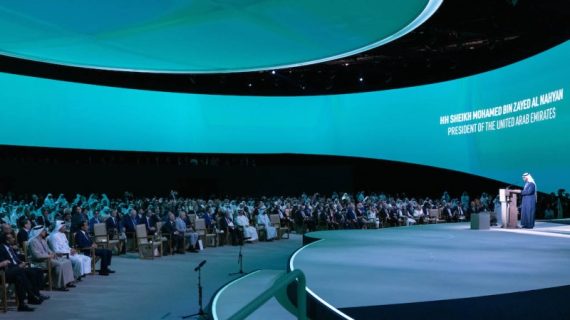I
n a landmark decision at the 28th Conference of the Parties (COP28) held in the United Arab Emirates, 118 countries have made a bold commitment to triple their global renewable energy capacity by the year 2030. The announcement, which also includes a pledge to double progress in energy efficiency, marks a significant step forward in the global decarbonization effort.
The Global Acceleration for Decarbonization initiative, unveiled at the conference in Dubai, has garnered the support of a diverse group of nations, including the UAE, the United States, Brazil, Japan, the United Kingdom, and many others across Europe and Africa.
However, the commitment has notable absences, with Turkey, China, India, and South Africa—key players in global energy markets—yet to sign the pledge. This hesitance comes amidst the ambitious target set by the initiative, which seeks to increase the current renewable energy capacity from 3.4 terawatts to an impressive 11 terawatts within the next eight years.
Five key steps
The International Energy Agency has outlined five key steps crucial to the success of this UN summit’s goals, with the renewable energy targets at the forefront.
In a parallel development, the Oil and Gas Decarbonization Covenant (OGDC) has seen 50 companies, which represent over 40% of the global oil production, commit to decarbonization efforts. This includes significant financial backing, with $1 billion dedicated to methane emission reduction projects.
COP28 President Ahmed Al Jaber made an impassioned plea for more nations to join the initiative, emphasizing the role of renewable energy and enhanced energy efficiency in combating climate change.
Al Jaber hailed the OGDC launch as a monumental step and acknowledged the recent net-zero emission targets set by national oil companies for 2050, while challenging them to strive for even greater reductions.
Tripling renewable energy capacity by 2030
Joyce Lee, the Head of Policy and Projects at the Global Wind Energy Council, reflected the general consensus that tripling renewable energy capacity by 2030 is critical in the fight against climate change. She highlighted the urgency for translating these targets into concrete policy, regulatory measures, and investment actions, coupled with a phased reduction of fossil fuel use.
As the COP28 progresses, all eyes are on the major economies yet to commit, with the global community eagerly waiting to see whether these nations will align with the urgent call for a renewable energy transition to safeguard the planet’s future.
Source: Anadolu Agency.
Recommended





